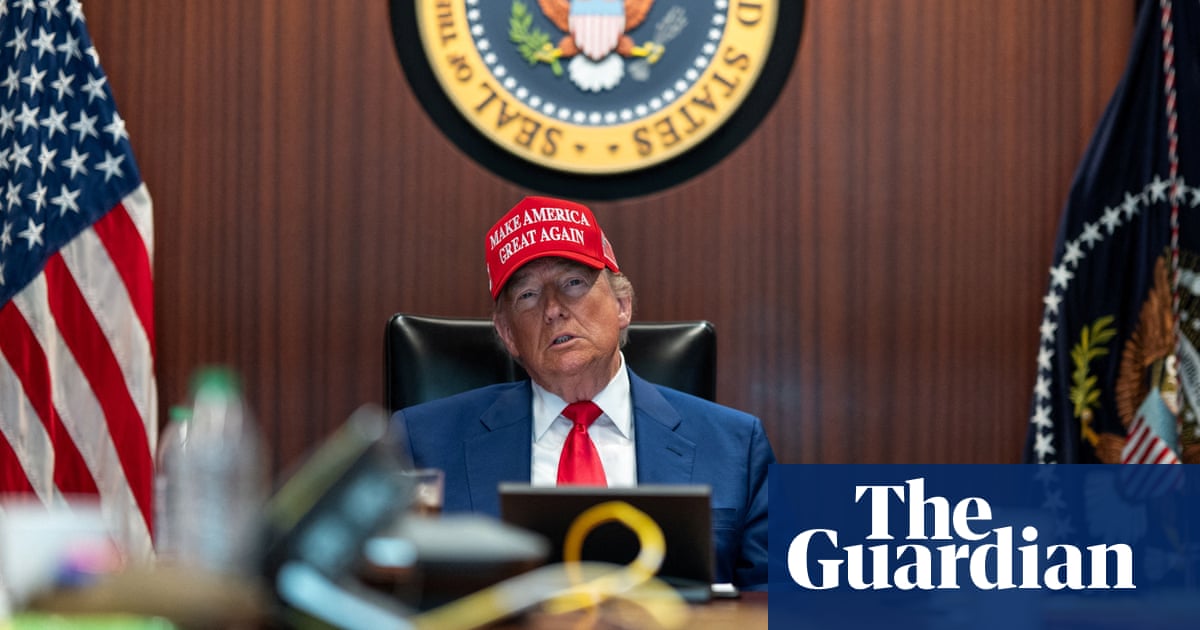Nations in the Middle East and beyond responded with alarm after US strikes on Iranian nuclear sites on Saturday night as the EU and the UN called for immediate diplomacy, amid mounting fears that the war could trigger a wider escalation that could spiral out of control.
Qatar, which hosts the biggest US military base in the Middle East, said on Sunday that it feared there could be serious repercussions regionally and internationally.
Its foreign ministry said in a statement: “The current dangerous escalation in the region may lead to catastrophic consequences at both the regional and international levels.” It said it was calling on all parties “to exercise wisdom, restraint, and to avoid further escalation”.
The UN secretary general, António Guterres, said he was “gravely alarmed” by theUS’s use of force against Iran. He said that “at this perilous hour” it was crucial to “avoid a spiral of chaos”.
He added: “This is a dangerous escalation in a region already on the edge and a direct threat to international peace and security. There is a growing risk that this conflict could rapidly get out of control, with catastrophic consequences for civilians, the region and the world. There is no military solution. The only path forward is diplomacy. The only hope is peace.”
Saudi Arabia expressed “great concern”. In a statement on social media, its foreign ministry said there was a “need to exert all efforts to exercise restraint, de-escalate, and avoid escalation”. It urged the international community to increase attempts to find a political solution.
Iraq’s government spokesperson, Basim Alawadi, said: “This military escalation constitutes a grave threat to peace and security in the Middle East and poses serious risks to regional stability.”
Pakistan, the only nuclear-armed Muslim country and a longtime Washington ally, said the US attacks “violate all norms of international law”. Its foreign ministry said in a statement: “We are gravely concerned at the possible further escalation of tensions in the region.” It said Iran had a legitimate right to defend itself under the UN charter.
The Japanese prime minister, Shigeru Ishiba, said: “It is crucial that there be a quick de-escalation of the conflict. We are closely monitoring the situation with grave concern.”
The EU foreign policy chief, Kaja Kallas, also called for a de-escalation and a return to negotiations. She said Iran must not be allowed to develop a nuclear weapon, describing the possibility as “a threat to international security”.
“I urge all sides to step back, return to the negotiating table and prevent further escalation,” Kallas wrote on social media. EU foreign ministers will meet to discuss the situation on Monday.
Italy’s foreign minister, Antonio Tajani, told the state broadcaster RAI: “Now we hope that, after this attack, which caused massive damage to nuclear weapons production and posed a threat to the entire region, a de-escalation can begin and Iran can sit down at the negotiating table.”
The German chancellor, Friedrich Merz, said Iran must “immediately enter into negotiations with the US and Israel and to find a diplomatic solution to the conflict”.
Keir Starmer alsocalled for a return to negotiations. He said in a statement: “Iran’s nuclear programme is a grave threat to international security. Iran can never be allowed to develop a nuclear weapon and the US has taken action to alleviate that threat. The situation in the Middle East remains volatile and stability in the region is a priority. We call on Iran to return to the negotiating table and reach a diplomatic solution to end this crisis.”
The New Zealand foreign minister, Winston Peters, said in a statement: “Ongoing military action in the Middle East is extremely worrying, and it is critical further escalation is avoided. New Zealand strongly supports efforts towards diplomacy. We urge all parties to return to talks. Diplomacy will deliver a more enduring resolution than further military action.”
An Australian government spokesperson said: “We have been clear that Iran’s nuclear and ballistic missile programme has been a threat to international peace and security. We note the US president’s statement that now is the time for peace. The security situation in the region is highly volatile. We continue to call for de-escalation, dialogue and diplomacy.”
Venezuela’s foreign minister, Yván Gil, said his country “condemned US military aggression against Iran” and called for an immediate cessation of hostilities.
Cuba’s president, Miguel Díaz-Canel, strongly condemned the US bombing, which he described as “a dangerous escalation”. He wrote on social media: “The aggression seriously violates the UN charter and international law and plunges humanity into a crisis with irreversible consequences.”
Mexico’s foreign ministry urgently called for “diplomatic dialogue for peace between the parties involved in the Middle East conflict”.
Israel’s prime minister, Benjamin Netanyahu, congratulated Donald Trump in a video posted on social media. He said: “Your bold decision to target Iran’s nuclear facilities with the awesome and righteous might of the United States will change history. History will record that President Trump acted to deny the world’s most dangerous regime the world’s most dangerous weapons.”
